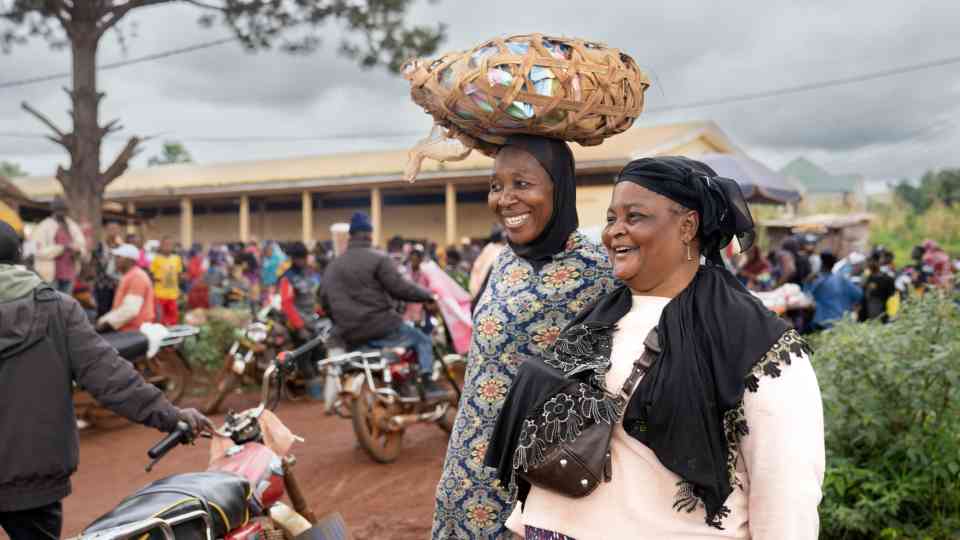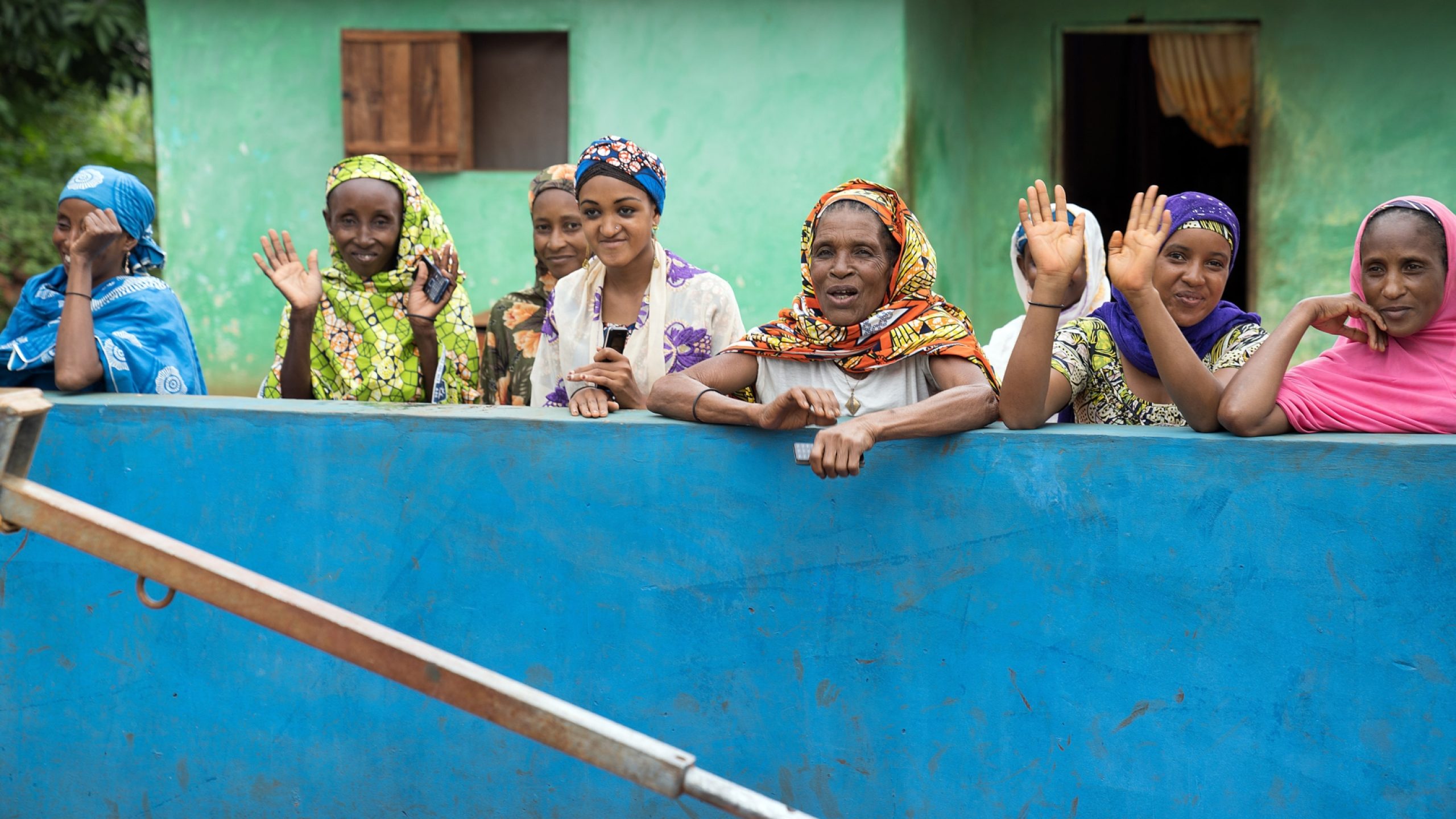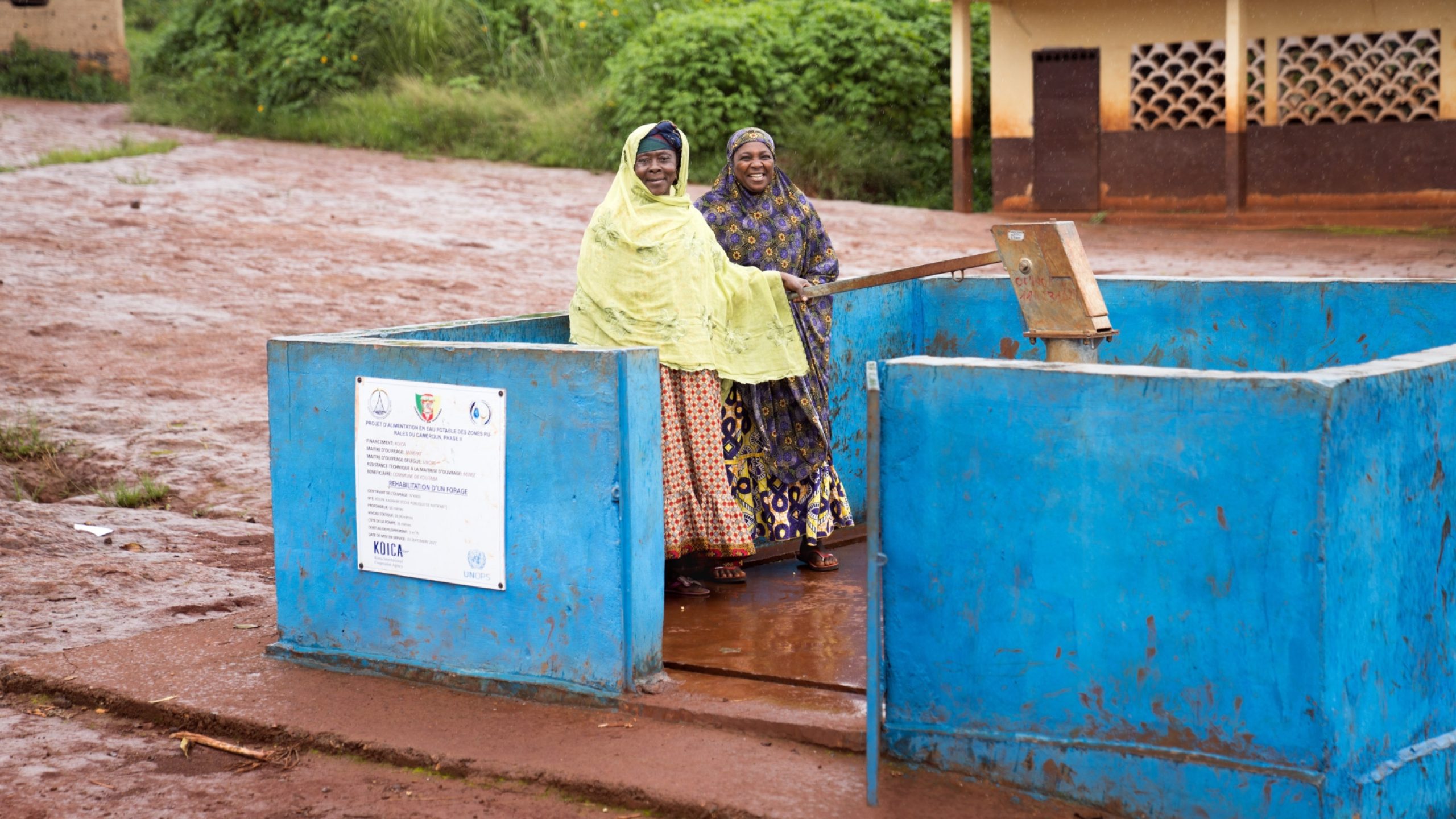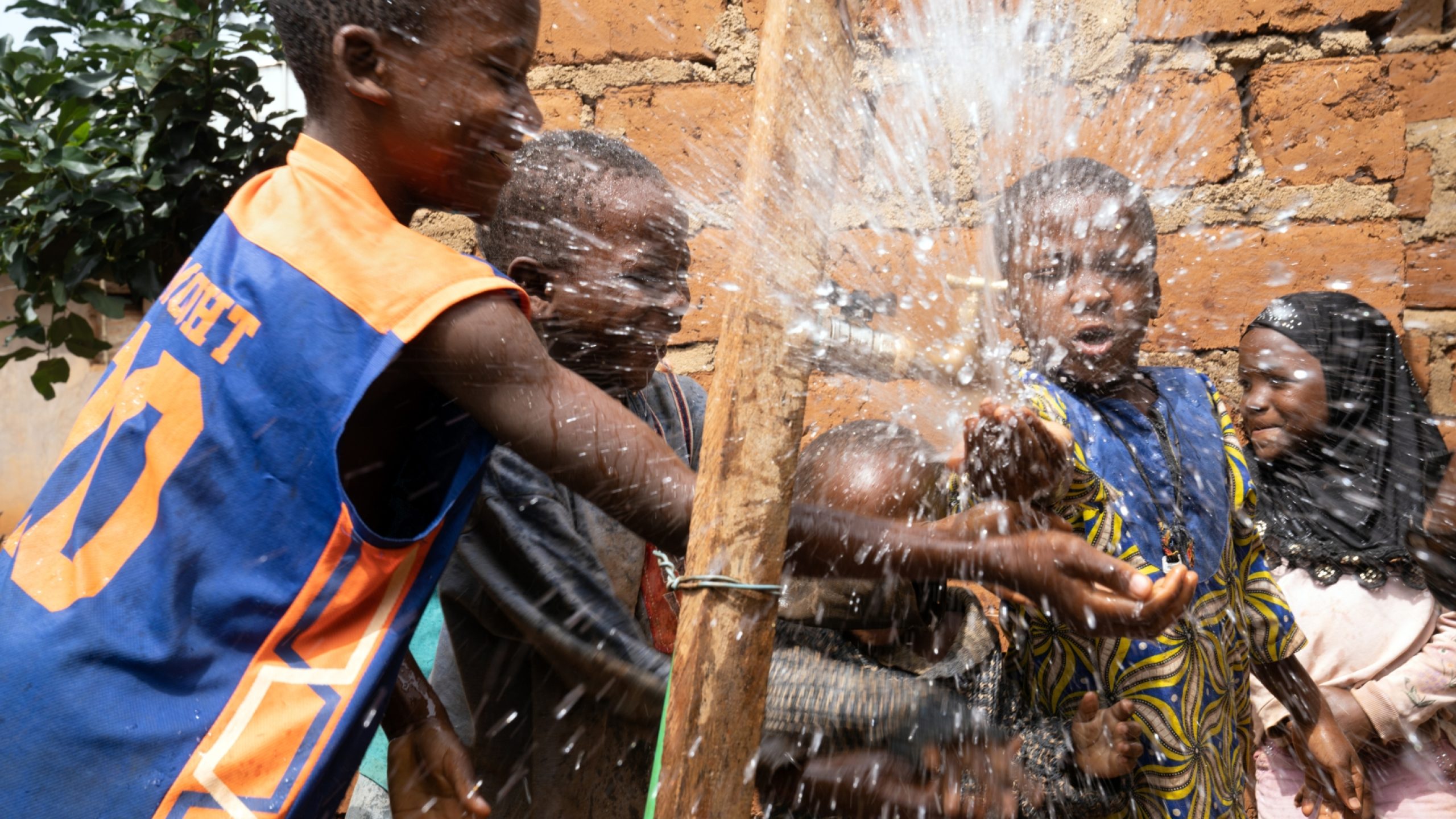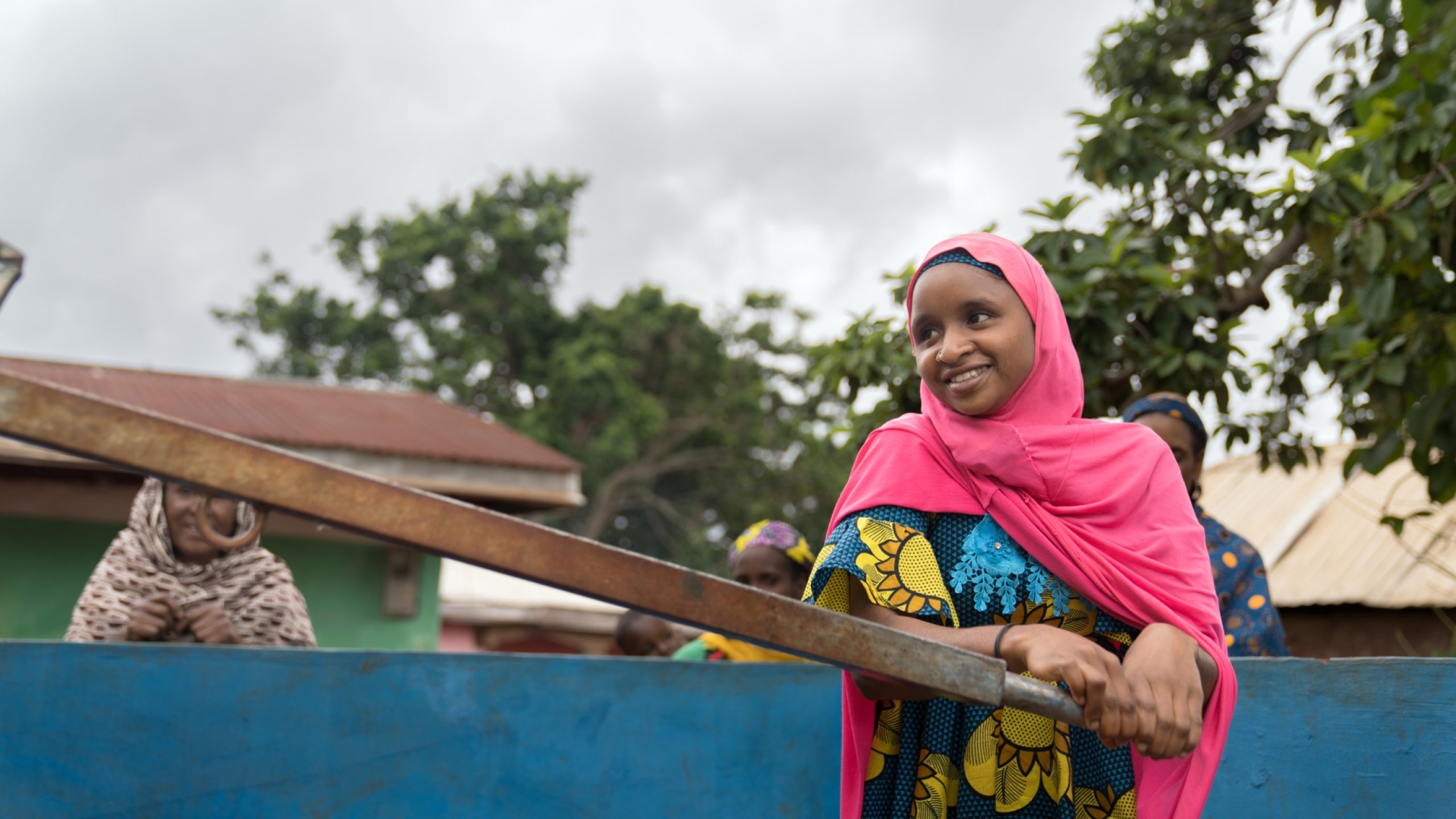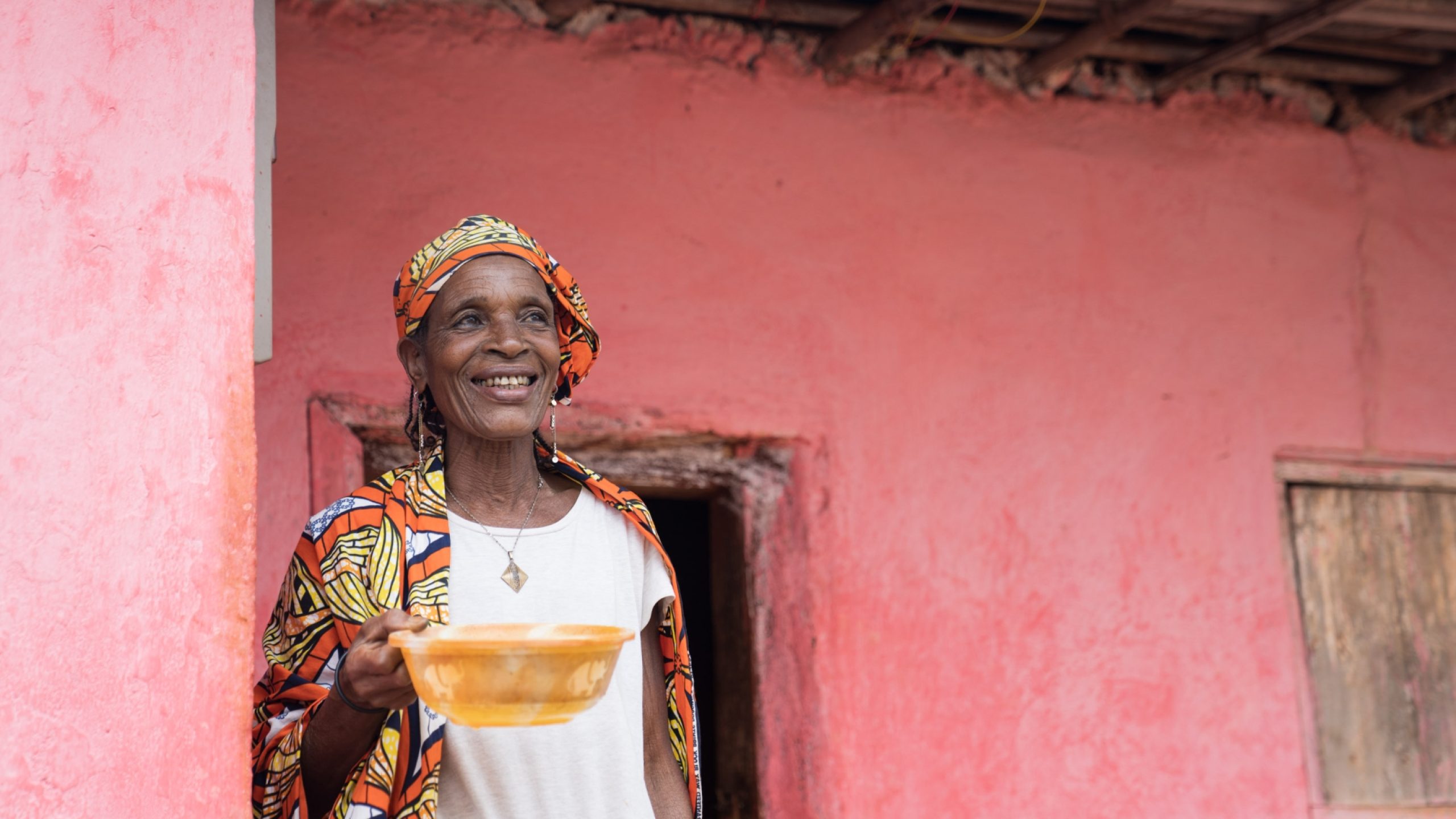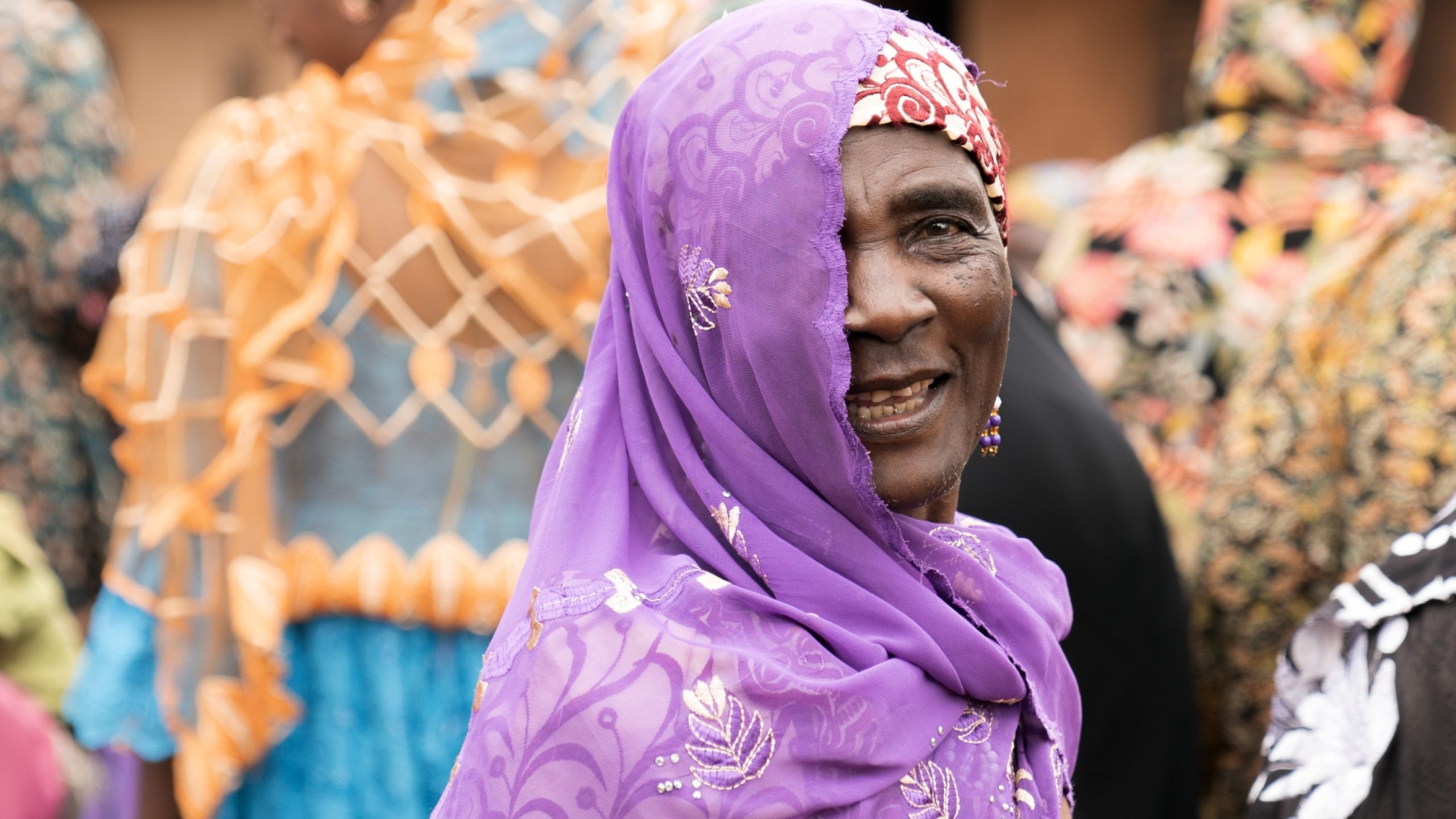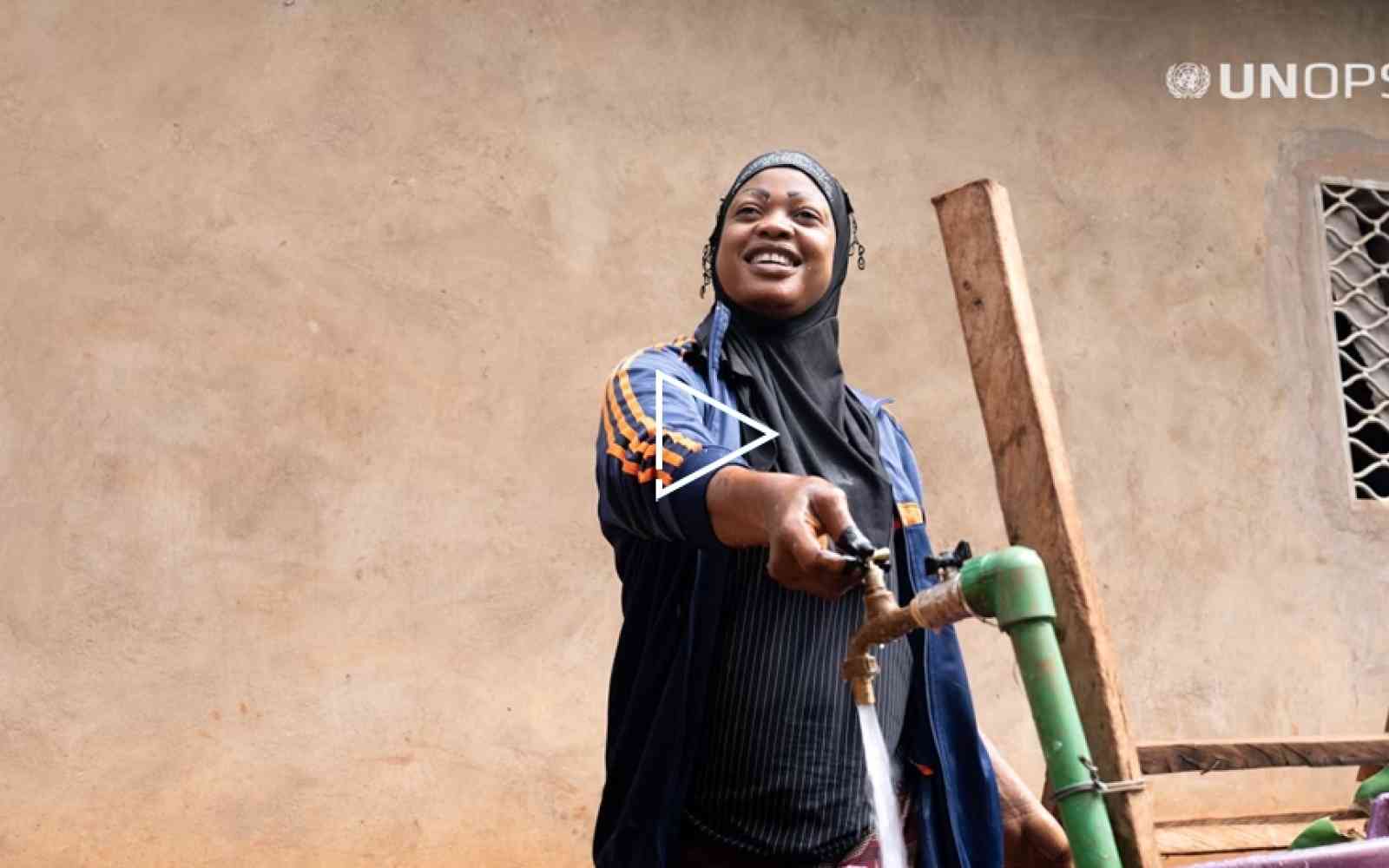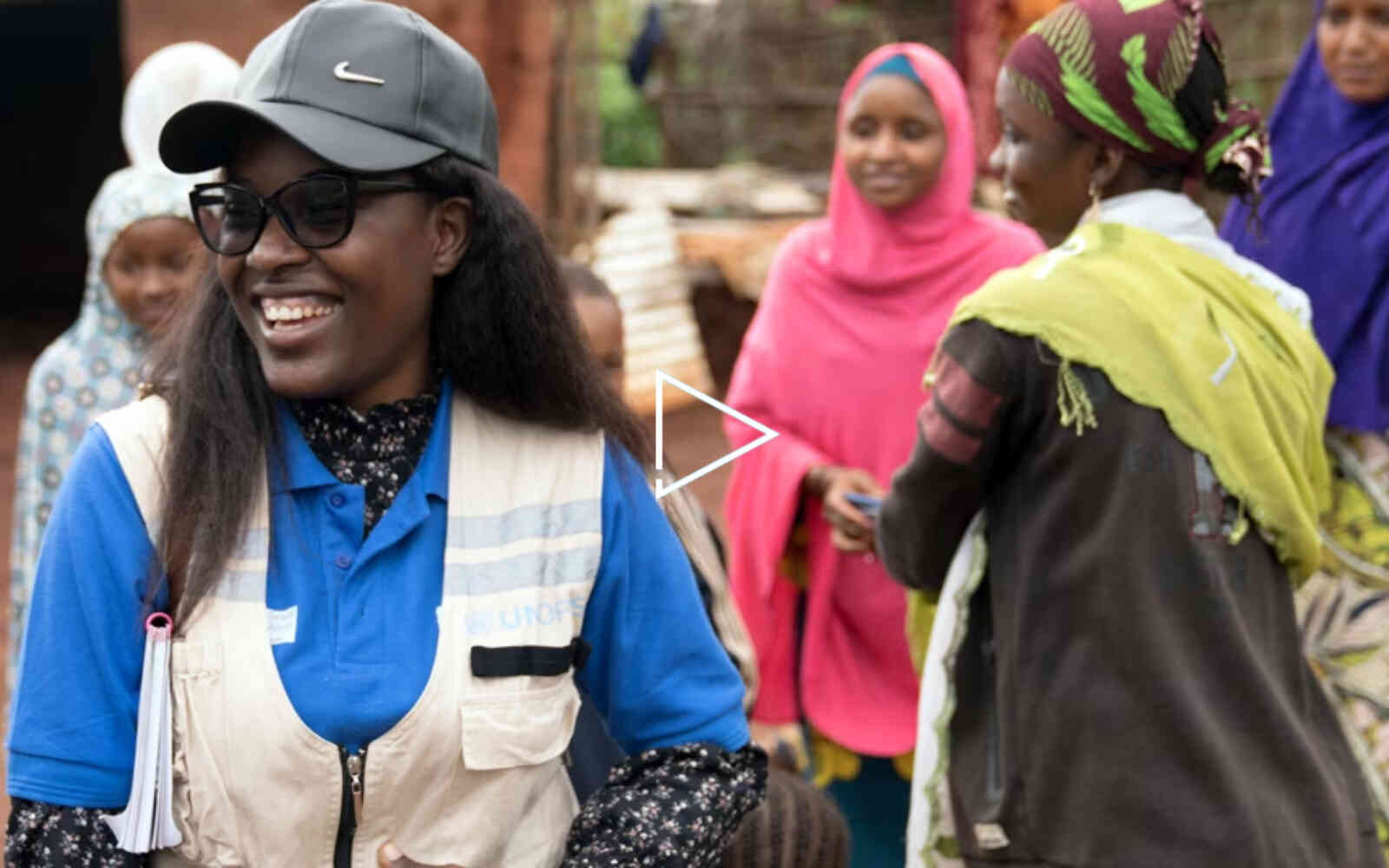The United Nations Office for Project Services (UNOPS)

Water is life
Better access to clean drinking water is helping to improve health in rural Cameroon.
Travel anywhere in the world and people will agree that water is life. It impacts our health, our hygiene and our ability to thrive as human beings. It is a basic human right yet a resource that too often is taken for granted. For many, the lack of access to safe drinking water continues to be the source of untold suffering.
In western Cameroon, in the rural municipality of Koutaba, most people depend on being able to extract clean water from deep underground. But dilapidated infrastructure, or a lack thereof, has made accessing it extremely difficult.
We used to go to the river to get water from there. It’s quite far and the water there has many problems. There would be cows and other animals [polluting the water].

Waterborne diseases like typhoid are common in the area, and cholera, the most dangerous, is endemic in Cameroon, where outbreaks have been reported every year for the past six years.
Between 2022 and 2023, almost 1,900 cases of cholera had been confirmed and hundreds of deaths recorded. Those figures could even be higher, according to the government, as only one-third of the population are estimated to visit hospitals when sick, with the majority opting to see traditional healers.
Nevertheless, waterborne illnesses are putting immense pressure on the country’s health services. They have destroyed livelihoods and caused many to lose their lives too soon. “People in Koutaba have lived through some very very difficult times because in times of cholera, we had many deaths here,” explains Ibrahim Koutaptou, the mayor of Koutaba.
Making a change
With funding from the Korean International Cooperation Agency (KOICA), UNOPS is working with the government of Cameroon and local communities to bring clean drinking water to more than 120 villages across 3 different regions of the country.
In Koutaba, Ibrahim Mboumbou, the municipality’s water and energy focal point, delayed his retirement to work on the project because the lack of access to safe water is an issue he feels passionate about solving.

When you work with what gives life, you can’t be anything but proud. I was supposed to retire in 2020, but I stayed on just for the water problem and to help on this project.
To establish clean water sources, six boreholes were drilled deep into the ground to serve smaller villages across the municipality. In larger villages, three water supply systems, including two powered by solar energy, were constructed to pump clean water either directly to people’s homes or to public water points.
The new infrastructure can also be extended as needed and households can apply to be connected to the public water supply at a small cost.




Engaging communities
At the heart of the project are the communities, which have helped build the infrastructure and played an instrumental role in also establishing committees that are responsible for overseeing the management and maintenance of it.
In Bafolé, Awah Njikam was recently elected as treasurer of her village’s water management committee. At the end of each month, she collects the payments to cover the amount of water people have used. This money is then put into an account and used to cover maintenance and development costs as needed.
“The water management committee is important as it looks after our resources and checks that the public and private taps are in good condition,” says Awah. “I’m proud to do this work because I have drinking water now in front of my home.”
In a region where women tend to be excluded from decision-making roles, encouraging and ensuring their involvement in the committees has been an important part of the community outreach.
Did you know?
- An estimated 2 billion people worldwide don’t have access to safely managed drinking water services. Almost a quarter of these people collect water from unprotected wells and springs or untreated sources like rivers and streams.
People have embraced the project, body and soul. Because without this water, there is no more life.


A lasting impact
From village to village across Koutaba, residents are quickly beginning to see an improvement in health. According to Chaida, people are getting less sick in her village because they no longer have to drink water from the river. “Since we’ve had the water point here, it has really helped us,” she says.
And some communities are rolling up their sleeves to further develop the new infrastructure. In Djiyit-Djickechi village, Koutaba City Councillor Blaise Gbetkom Yaya explains how his community is currently in the process of building a water tower to extend the infrastructure to reach more neighbourhoods.
People have stopped leaving the village because we now have the best water to drink. The expression that we use is water is life. That is implemented here.
Project details









